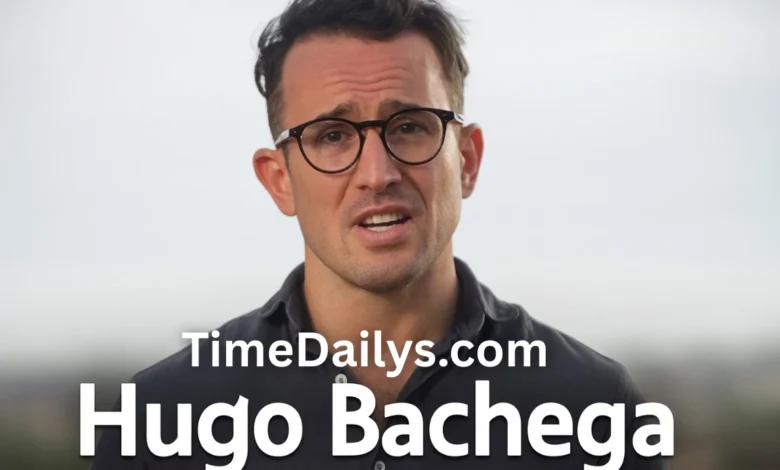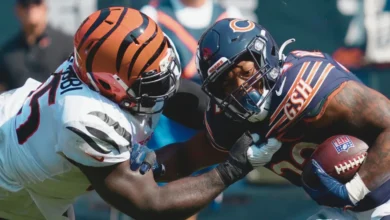The Fascinating Story Behind the Hugo Bachega Accent

Introduction: Understanding the Hugo Bachega Accent
When people tune into BBC World News, one detail often sparks curiosity, the Hugo Bachega accent. Listeners notice how distinct it sounds, a mix that doesn’t fit neatly into one category. For some, it feels British; for others, it carries international tones. This curiosity has turned his voice into a subject of online debates and social media chatter. So, what’s the real story behind the way he speaks?
In this article, we’ll explore the background, influences, and public reactions to Hugo Bachega’s unique accent. By the end, you’ll understand not only where it comes from but also why it resonates with global audiences.
Hugo Bachega’s Background and Early Life
To understand the Hugo Bachega accent, you first need to look at his roots. Born in Brazil, Bachega grew up in a country with one of the most musical and expressive languages in the world, Portuguese. Growing up bilingual or exposed to multiple languages often leaves a mark on how people speak English later in life.
When he began pursuing a career in journalism, Hugo entered a global environment. Exposure to different cultures and professional training played a big part in shaping how he sounds today. Unlike those who grow up in a single region, his accent became layered and flexible, a reflection of his international journey.
The Influence of BBC Training on His Accent
BBC reporters are known for their clear diction. The network invests in speech training to make sure audiences worldwide understand their presenters. This training often softens regional tones and blends them into a more neutral, global style.
The Hugo Bachega accent carries this influence. While some hear hints of his Brazilian background, others catch tones of Received Pronunciation (RP), a form of standard British English associated with broadcasting. This blend is what makes his speech so captivating, it’s both familiar and unique.
Why the Hugo Bachega Accent Sounds “Mixed”
Listeners often ask: why does Hugo Bachega sound British if he’s Brazilian? The answer lies in years of international exposure. When people live abroad, accents naturally shift. Add in professional broadcasting, and the result is a hybrid tone.
His accent reflects a balance between clarity, neutrality, and personal identity. Unlike actors who might “put on” an accent, journalists like Hugo adapt theirs to serve a global audience. That’s why his way of speaking doesn’t fully match any single region.
Public Reactions to the Hugo Bachega Accent
Social media has plenty to say about the Hugo Bachega accent. Viewers post on Twitter and Reddit, curious about why his speech feels so distinctive. Some admire it, calling it smooth and professional. Others admit they’ve spent entire news segments trying to figure out where he’s from.
This attention highlights an interesting truth: accents aren’t just about geography. They’re about perception, identity, and the way we connect to people we hear. For Hugo, his accent has become part of his professional brand.
The Role of Multilingualism in His Speech
Being multilingual often leaves subtle marks on pronunciation. Even if you speak flawless English, the rhythm and melody of your native language may shape how words sound. In Hugo’s case, Portuguese likely gave his accent a warmer, more fluid tone.
That’s part of the reason his voice stands out from other BBC correspondents. While many sound polished and formal, his delivery carries a natural rhythm that feels approachable. It’s a perfect example of how multilingual backgrounds enrich communication.
Comparing the Hugo Bachega Accent with Other BBC Reporters
When you compare his accent to other BBC correspondents, the difference is clear. Many of his colleagues come from Britain and stick closely to traditional RP. Others, like reporters with Irish or Scottish roots, carry softer traces of their regions.
The Hugo Bachega accent, however, is in its own category. It’s global rather than regional, shaped by his Brazilian roots, British training, and international experience. This combination makes him relatable to a wide audience, particularly in countries where English isn’t the first language.
Why Audiences Find His Accent Appealing
There’s more to this accent than curiosity, it’s also appealing. Studies in linguistics show that people often associate clear, neutral speech with authority and trust. At the same time, warmth in tone creates a sense of connection.
The Hugo Bachega accent strikes both chords. It feels professional, yet friendly. For a journalist reporting from some of the most sensitive parts of the world, this balance is essential. His voice reassures viewers while keeping them engaged.
FAQs
What is the origin of the Hugo Bachega accent?
The accent comes from his Brazilian background combined with British broadcasting training, resulting in a unique global tone.
Why does Hugo Bachega sound British?
Years of BBC training and international exposure shaped his accent, giving it a British influence while retaining subtle Brazilian tones.
Is the Hugo Bachega accent common among journalists?
Not exactly. While many reporters adopt a neutral style, Hugo’s mix of Brazilian and British influence makes his voice distinctive.
Do people like the Hugo Bachega accent?
Yes, many find it appealing because it’s both professional and approachable, making him easy to listen to during broadcasts.
Final Thoughts: The Lasting Impact of the Hugo Bachega Accent
The Hugo Bachega accent isn’t just about how he pronounces words, it’s a reflection of his story. From Brazil to the BBC, his voice has been shaped by culture, travel, and professional standards. What people hear today is a global accent that bridges gaps between audiences across continents.
As news becomes more international, voices like his represent a new style of journalism, clear, adaptable, and inclusive. So, the next time you hear Hugo Bachega on your screen, you’ll know his accent is more than a sound. It’s part of his identity as a global communicator.




